
Hints for Bridge Players using Bridge Analyser.

|
|---|
|
|
Deal random hands and practice your bidding or play. |
|---|---|
|
|
Hands can be biased for suit lengths, suit strength, total points, playing strength, losing trick count, controls, strength of the strongest hand. You can even specify certain cards (screen shot) must be in a certain hand or must not be in a certain hand(s). See more details about biasing deals on the Teachers page. |
|
|
There is even an opening bid engine so you can specify a hand has a certain opening bid using a number of popular bidding methods including any strength no-trump, Acol. strong club, 5-card majors, weak or strong 2's etc. If one hand is set to open the bidding the next hand can also be set to make an overcall using many standard conventions (like Michaels, Astro etc). |
|
|
A link to Bo Haglund's DDS means a making contracts grid can be printed or a best declarer/defensive line found to help you develop your card play. This DDS will run separately on each processor your computer has to achieve blistering speed. |
|
|
Set up particular situations to test your bidding methods. For example give South a 1NT opening and West a 3 diamond overcall, then deal random hands for North. You can see when it is right or wrong to bid, whether you want double to be penalty or take out, should 3 hearts be forcing or to play? |
|
|
You can graph distributions to help consider how you want to bid. In the above example graphs can help you work out how often you have a 4-card vs 5-cards major and how often you have diamond length. This may prove to you that double should be take out which is not how most people play it even though a penalty double hand is rare and a need to find a 4-4 major fit common. |
|
|
|
|
|
You can enter hands you do not understand and go through play and bidding options to see what should happen. A very powerful feature is that you can display the optimum contract result for each legal card play at any point in the hand. See here for an example. |
|
|
You can deal a set of hands with certain characteristics for North-South (say stronger than 28 points between you) then print all the North hands on one page and the South hands on another. Now give you favourite partner one page and bid each of the hands in turn to see if you get to the best contract. If you are not sure use the Double Dummy Solver to tell you the best making contract with perfect play and defence. |
|
|
If you had a difficult bidding decision you can recreate it by inputting your hand (and saving it as a single hand rather than deal of 4 hands) and then locking that hand in any position to randomly deal the other 39 cards (or deal the other cards to match the rest of the auction) to see how often it is right to do what you did or maybe to see what else may have been better. |
And you can save all your hands in files with useful indexes about the type of hand and retrieve them with a simple screen that scrolls through the file showing the hands and allowing you to edit or play each hand as you wish:
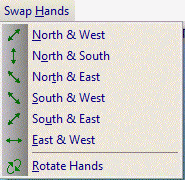 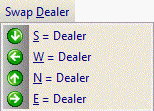 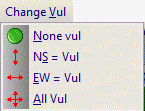 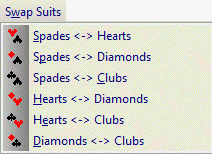 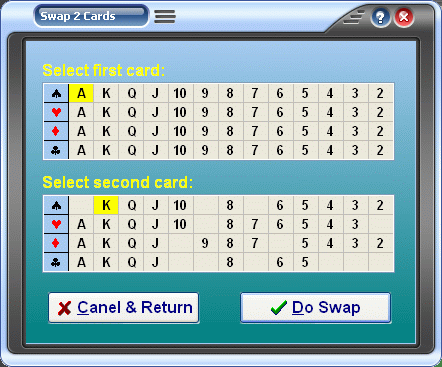
Menu options to print, save or edit various aspects of the deal
Sets dealer and vul to standard order for all deals in the set of deals opened
Open a file containg a set of deals
The track bar gives fast access to any deal even if you have hundreds of deals in one file
Makeable contracts for this deal, also bidding sequences can be saved for each deal in the file
Test saved in the file by you to describe the hand
Find the deal you want then save it to a new file to create sets of deals with similar characteristics
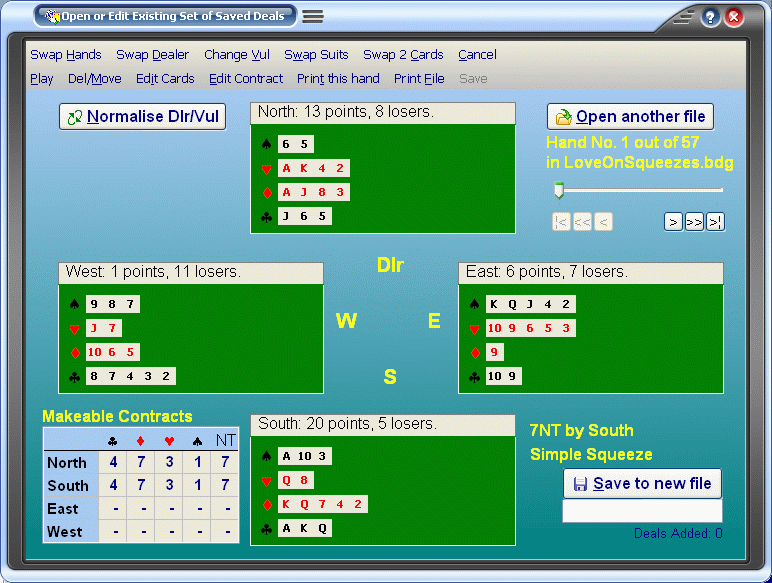
|
Menu options to edit dealer, vulnerability, suits, and individual cards:

|

|

|

|
|---|